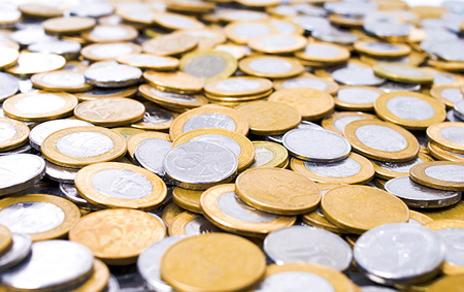

Unlike traditional investments like stocks and bonds, retail investors who buy and sell precious metals must pay sales taxes, but that could soon change. So far, 42 states have removed some or all of the taxes from gold and silver transactions. “The last several years have been really promising in eliminating sales taxes in many states,” Jp Cortez, Policy Director, Sound Money Defense League explained. “Last year Arkansas and Ohio both decided to move forward with removing sales tax on precious metal transactions.”
Cortez continued, “This year Kentucky, Mississippi, Hawaii, New Jersey and Tennessee are all considering removing sales taxes on gold and silver purchases as well.”
The Sound Money Defense League is a public policy project in collaboration with money metals exchange to remonetize gold and silver.
Cortez spoke to David Lin, anchor at Kitco News on eliminating taxes on gold and silver transactions.
At this time, more states are considering eliminating sales taxes, Cortez revealed. “There are defensive battles right now. Alabama and Virginia are fighting sunset battles, hoping to extend their current existing exemption,” he said. “Oklahoma and West Virginia also want to eliminate capital gains taxes, so when you sell your assets in those states, you wouldn’t be charged a state income tax.”
Cortez discussed how sales taxes impact the sales and purchases of precious metals. “There are rules, restrictions and tax disincentives that surround the sale and purchase of gold and silver,” Cotez said. “Many people would like to invest in precious metals, because these are assets that have held their value since time in memorial. But very often investors are unable to, because of state tax disincentives, along with rules and regulations. It’s a very onerous process.”
Cortez emphasized the importance of eliminating sales taxes, because in some states you end up paying taxes three times. “Capital gains taxes are federally mandated. If you buy gold and silver, you are going to get hit with a state sales tax between 7% to 10%. This illustrates how criminal this is in nine states,” he pointed out. “Then a couple of years later whenever you sell the asset, you are going to be charged capital gains a second time now at the federal level. And all states except in two or three, you are charged again a third time.”
“As an investment it becomes completely untenable. It’s impossible to store your wealth in this way, because of all the taxes that burden investors,” Cortez added.
Explaining why transactions of precious metals are taxed while stocks and bonds are not, Cortez said the government and the IRS “classifies gold and silver as collectibles. In many cases, they are not deemed as investments. They are categorically put in the same group as beanie babies and baseball cards,” he noted. “There is special discriminatory treatment towards investors who want to store their money in precious metals.”
Cortez stressed why it is necessary to exempt gold and silver transactions from sales taxes. “There are lots of reasons why gold and silver should not be taxed, but an easy one is simply resale. When you buy a car, you are using the car,” he said. “It’s not being held for resale, but in the case of stocks, bonds, ETFs, gold, silver and Bitcoin, these are goods that are being held for resale. They are not consumable final goods. It’s inappropriate to charge a sales tax on them.”
For more on removing taxes on gold and silver transactions , please watch the full video above.
Time to buy Gold and Silver on the dips
